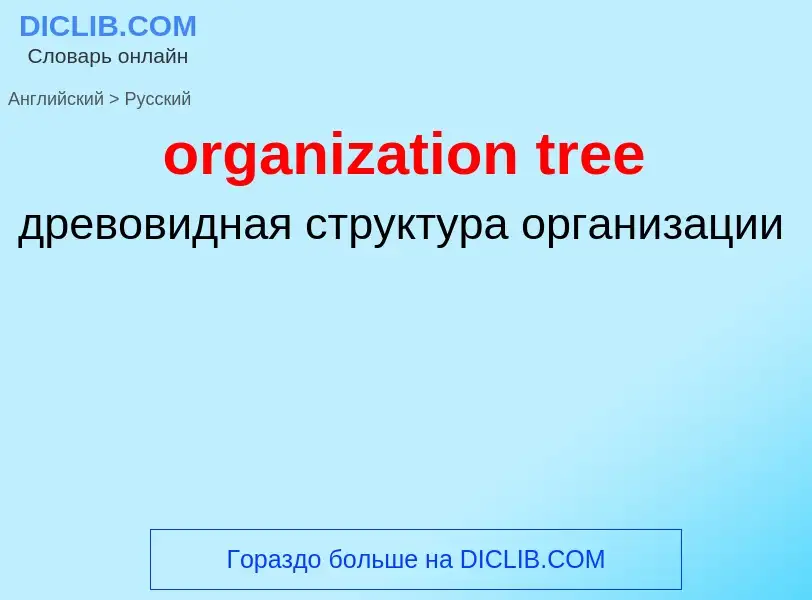Übersetzung und Analyse von Wörtern durch künstliche Intelligenz ChatGPT
Auf dieser Seite erhalten Sie eine detaillierte Analyse eines Wortes oder einer Phrase mithilfe der besten heute verfügbaren Technologie der künstlichen Intelligenz:
- wie das Wort verwendet wird
- Häufigkeit der Nutzung
- es wird häufiger in mündlicher oder schriftlicher Rede verwendet
- Wortübersetzungsoptionen
- Anwendungsbeispiele (mehrere Phrasen mit Übersetzung)
- Etymologie
organization tree - Übersetzung nach russisch
общая лексика
лептоспермум метловидный (Leptospermum scoparium)
['ti:tri:]
существительное
общая лексика
чайный куст
чай
ботаника
лептоспермум (Leptospermum scoparium)
Definition
Wikipedia
Knowledge organization (KO), organization of knowledge, organization of information, or information organization is an intellectual discipline concerned with activities such as document description, indexing, and classification that serve to provide systems of representation and order for knowledge and information objects. According to The Organization of Information by Joudrey and Taylor, information organization:
examines the activities carried out and tools used by people who work in places that accumulate information resources (e.g., books, maps, documents, datasets, images) for the use of humankind, both immediately and for posterity. It discusses the processes that are in place to make resources findable, whether someone is searching for a single known item or is browsing through hundreds of resources just hoping to discover something useful. Information organization supports a myriad of information-seeking scenarios.
Issues related to knowledge sharing can be said to have been an important part of knowledge management for a long time. Knowledge sharing has received a lot of attention in research and business practice both within and outside organizations and its different levels.
Sharing knowledge is not only about giving it to others, but it also includes searching, locating, and absorbing knowledge. Unawareness of the employees’ works and duties tend to provoke the repetition of mistakes, the waste of resources, and duplicating the same projects. It is important to motivate co-workers to share their knowledge. This concept is called knowledge enabling. It leads to trust among the individuals from an association and encourages a more open and proactive relationship that grants the trade of information easily.
Knowledge sharing is part of the three-phase knowledge management process which is a continuous process model. The three parts are knowledge creation, knowledge implementation, and knowledge sharing. The process is continuous, which is why the parts cannot be fully separated. Knowledge creation is the consequence of individuals’ minds, interactions, and activities. Developing new ideas and arrangements allude to the process of knowledge creation. Using the knowledge which is present at the company in the most effective manner stands for the implementation of knowledge. Knowledge sharing, the most essential part of the process for our topic, takes place when two or more people benefit by learning from each other.
Traditional human-based approaches performed by librarians, archivists, and subject specialists are increasingly challenged by computational (big data) algorithmic techniques. KO as a field of study is concerned with the nature and quality of such knowledge-organizing processes (KOP) (such as taxonomy and ontology) as well as the resulting knowledge organizing systems (KOS).

